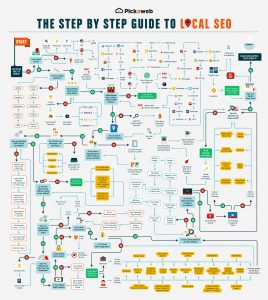Marketing Ops Fail: Marketers Challenged By Pandemic
Marketers have been forced to examine the effectiveness of their marketing operations to improve performance by identifying areas of improvement and implementing strategies to solve a variety of new challenges accelerated by the changes brought about by COVID-19.
When asked to describe the effectiveness of their strategies, here’s what they had to say:
- Grade A: 40% said they have strong collaboration and workflow tools that are integrated
- Grade C: 45% said while they have some good tools, they need to improve many areas, especially integration
- Grade F: 15% find their company is dependent on spreadsheets, and do not have strong collaboration or workflow tools
“We’re surprised to learn from research we commissioned that only two in five give their marketing operations solutions an A-grade,” says Mirko Holzer, CEO of BrandMaker. “This means operational efficiency and strategic advantage are evading the marketing department and market opportunities are not being realized.”
Agility took on a new meaning this past year, he said, citing research released this week that analyzes the experiences and attitudes of top marketing executives around marketing operations. Companies want to become an agile and efficient marketing organizations, he said.
BrandMaker’s research — which surveyed more than 100 VP or C-level marketing executives at retail, financial services, and FMCG global companies — revealed that only two in five give their marketing operations solutions an A-grade and that marketing and campaign planning tops the list of planned marketing ops investments.
Some 90% of marketing teams believe their struggle with global campaign coordination impacts their marketing programs in several ways. About 44% cited missed opportunities for seasonal or other time-specific programs, while 43% find it difficult to quickly shift resources to respond to market changes, 41% cited localization as being slow and adding significant delays to programs, and 37% said content creation is slow because of the time-intensive review process.
Marketers also find it difficult to quickly shift resources to respond to change, at 43%. “To succeed, global marketers need to think differently, react immediately, and execute campaigns quickly,” Holzer says.
This requires both agility and effectiveness, but many global marketing organizations are still working with outdated marketing processes that inhibit workflow management and campaign planning and ultimately impact marketing effectiveness.
Older marketing tools were not designed to deliver the scale and orchestration required of marketing today.
When companies operate in four or more countries, they have additional challenges such as missed opportunities, localization, and content creation to match the area they serve.
About half of survey participants note missed opportunities for seasonal or other time-specific programs. “A brilliant creative campaign that ticks all the boxes in one market may be a complete failure in another due to different cultures, outlooks, and ideas,” Holzer says. “It is a major challenge for global organizations to adapt and localize campaigns across markets and regions to attract a local audience while retaining the campaign’s key messages and concept.”
Marketers must know what works and what doesn’t and need to learn fast and fail fast in order to update the marketing plan on a dime and then push those changes throughout a global organization so everyone is on the same page and can successfully execute as a cohesive, coordinated team.
When asked how marketers can speed the content review process, Holzer says, marketing and campaign planning tops the list of 2021 marketing operations investments, with 60% of CMOs agreeing this a core area for investment.
Fifty percent of CMOs would like to invest in expanding automation of marketing functions, while 39% view optimization of workflows and resource allocation, a key area of investment.
The latter is a greater investment priority for larger companies with more than 5,000 employees, with 53% saying they want to invest in workflow optimization.
(51)
Report Post




